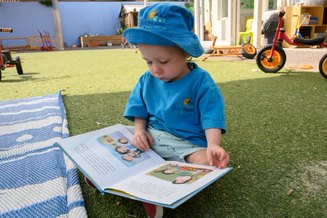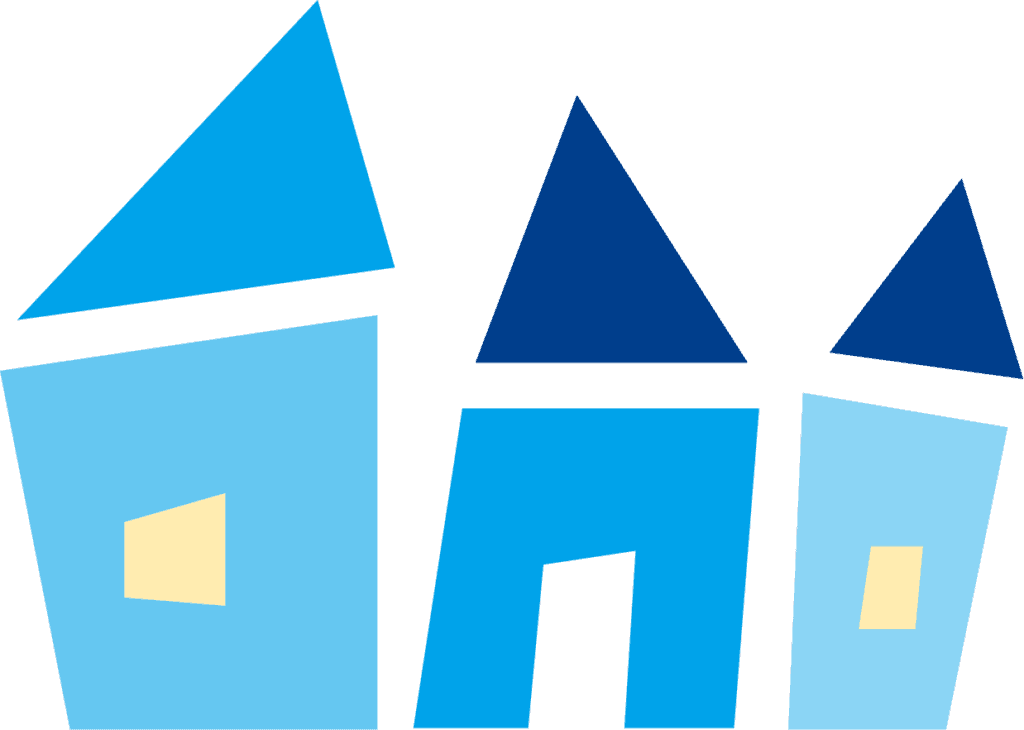Language development in early childhood and being able to develop language skills is of the utmost importance within those first few years of a child’s language development. It will set the foundation for many vital aspects in their lives, from learning opportunities to building strong friendships.
Their language skills should be strongly supported, and everyone should be aiming to encourage children’s language development by participating and providing different opportunities and activities to promote normal language development. Did you know, experts indicate children need to hear 21,000 word per day! Language development includes both expressive and receptive language, expressing language is the use of words and body gestures to get a message to another person. Receptive language is the ability to understand language, including sign language, and language comprehension.
It can feel overwhelming to think about how crucial it is to develop language skills in early childhood in a way that gives your little one the best start in life. Supporting language development is no easy task, but there are many steps that can be taken to provide a learning environment in which their language and vocabulary can thrive.
Why is speech and language development important?
It’s important to understand exactly why speech and language development in early childhood plays such a vital role in that child’s life. Speech and language development ensure that we are able to critically think about the world around us, understand various situations, communicate basic needs, thoughts and feelings, establish strong relationships, solve problems, and so much more.
These oral language skills also support other areas of a child’s development, such as cognitive development, social development and are a foundation for future literacy development.
To support language development in early childhood, there are many people who play a part in this crucial stage of life. Early childhood education teachers will support your child’s language learning and help children develop their language skills significantly by providing learning opportunities throughout the day. For example, singing, rhyming words, and exploring the sounds of words.
Parents play a significant role in their child’s vocabulary development as they will provide their child with more words to learn and, quite often, will teach their children their first words. Parents are a hugely important part of a child’s language development within those early years.
Ages and stages of language skills development in early childhood
Language development doesn’t simply begin at birth. Researchers have discovered that children can recognise languages before they’re even born and can even remember stories read to them whilst in the womb. Babies are also adept at being able to recognise their mother’s voice, so it’s easily identifiable that language development begins even before birth.
Once the baby is born, their language development usually goes through several developmental processes.
3-12 months
- Babies typically make cooing sounds accompanied by smiling
- Babbling utilising very simple sounds – goo and ga are common
- Not using recognisable words but sounding like they're talking
- Playing with simple gestures
12-18 months
- Learning how to say mama and dada and other new words that now have meaning
- Being able to understand simple instructions
- Employing the usage of nouns – eg, cow, truck.
18 months - 2 years
- Having the ability to give names to items they see frequently
- Utilising simple pronouns such as 'me', 'I', 'you' but getting them mixed up
- Being able to understand and complete easy tasks such as throwing a ball
2-3 years
- Incorporating some plurals and past tenses into their speech
- Can string together sentences with a few words
- Talking through actions they're doing
- Beginning to hold a conversation better
3-4 years
- Can be understood clearer by strangers
- Understanding how to ask who, what and why questions
4-5 years
- Being able to tell stories from start to finish and answer questions about those stories
- Putting together more difficult sentences with conjoining words such as 'if', 'and', and 'when'
- Understanding and being able to carry out tasks said by others
Developing language skills through everyday experiences
Early language development is massively helped by learning through interaction. If children are able to interact with their surrounding environment, their language skills will continue to grow as they learn effective communication skills. Early childhood development is assisted significantly when children are able to play.
The best early years learning opportunities will be found in the everyday experiences that children are able to experience, whether at home with their parents, or within educational contexts from preschool teachers or other early childhood educators.
The child’s literacy development will be helped significantly by being able to experience the world around them and learn the language that accompanies it along the way. During these early years, it’s important that children develop their receptive language and expressive language.
Sand Play and Sensory Trays
Sensory trays and sand play are great language activities that promote learning more words and incorporating them into their vocabulary. Providing a sensory tray that’s filled with an array of items will encourage children and adults to talk and touch the items on the tray. You can utilise items such as buttons, corks, noodles and Lego.
Playing in the sand also offers interesting talking points and helps children by giving them the opportunity to dig, build and explore.
Painting
Painting is an incredibly fun activity that delivers an entertaining and engaging way to learn about different colours. It obviously can be a rather messy endeavour, but the clean-up process can be utilised as a fun tool to promote increased vocabulary.
Painting is also a great way to encourage cognitive development by providing a new way to represent their ideas and allowing the child to explain the picture.
Storytelling and picture books
One of the age-old traditions that helps children’s imagination and communication skills improve significantly. You can begin early reading activities using picture books and sensory books to initiate a conversation with your child. They can start to identify objects, animals and people by being read a story.
Toys
Toys, particularly construction toys such as Lego, are a fun and easy way to spark language stimulation with an age-appropriate activity designed to encourage children’s language development. These toys offer an opportunity to chat about size and shape and discover new words.
Nursery rhymes
Rhymes are good speech activities to encourage children’s language development in the early years. Nursery rhymes are easy to learn and fun to listen to, and by utilising repetition within the rhymes, can impact a child’s language development in a great way.
By allowing your child to learn rhymes and even songs, you are letting them develop their vocabulary and a sense of humour to accompany it.
Gardening
Going outside and appreciating the beautiful nature surrounding the home or early childhood education centre your child is a part of is an exceptional way to encourage children to develop their vocabulary. Learning about plants and different outdoor elements gives your child a chance to learn new words and recognise the new objects they’ve learnt the words for.
The benefits of healthy language development in early childhood
Language forms the basis for all interactions we have in our lives. It sets us up for the learning we will need to accumulate throughout our lives, and will shape the relationships that we build with others. Language helps us understand our surrounding environments and situations, and allows us to use expressive language about our thoughts and feelings.
By encouraging language development in early childhood, you allow them the best start in life possible and the opportunity to learn more about the world around them, by giving them a vital tool to help them express their internal thoughts.
It will be the foundation for the rest of their lives, and is absolutely crucial to give your child every chance to grow their vocabulary, experience new activities and interact with their surrounding environment.


